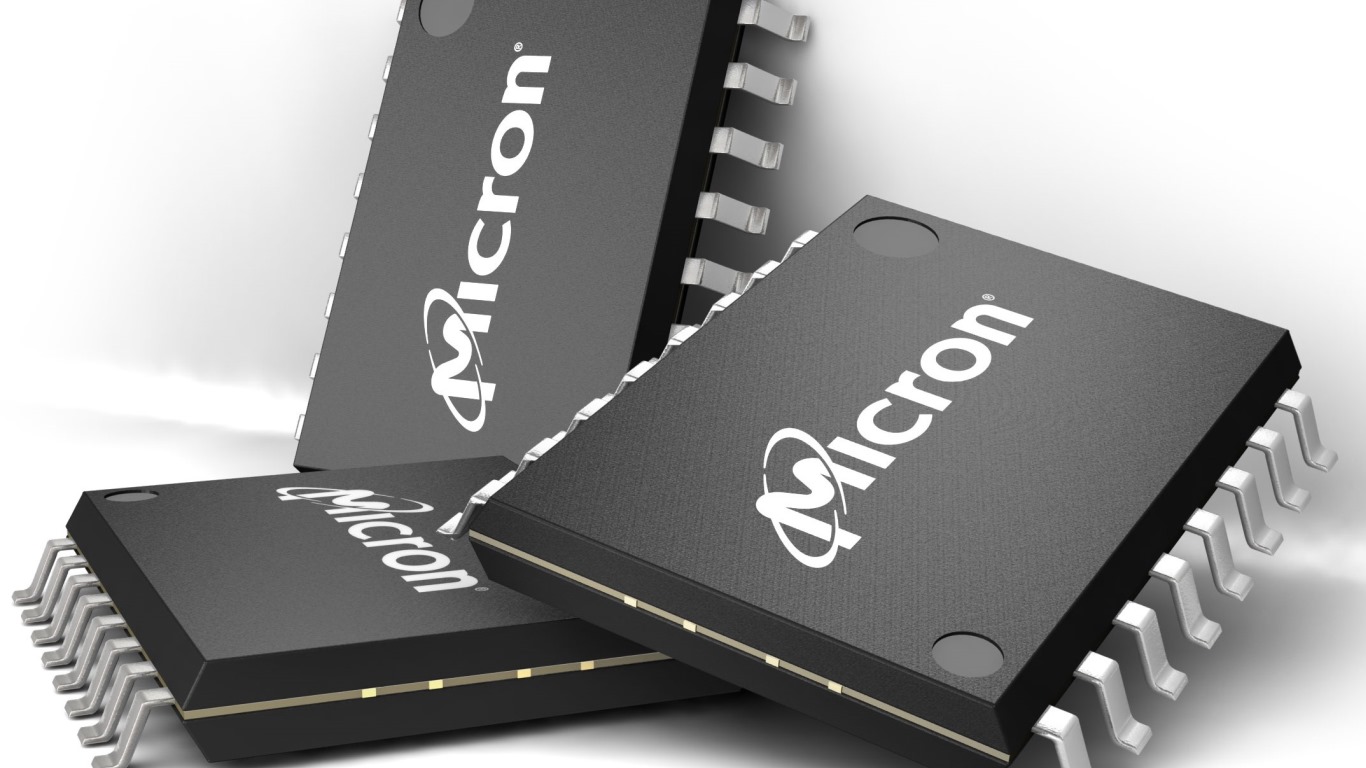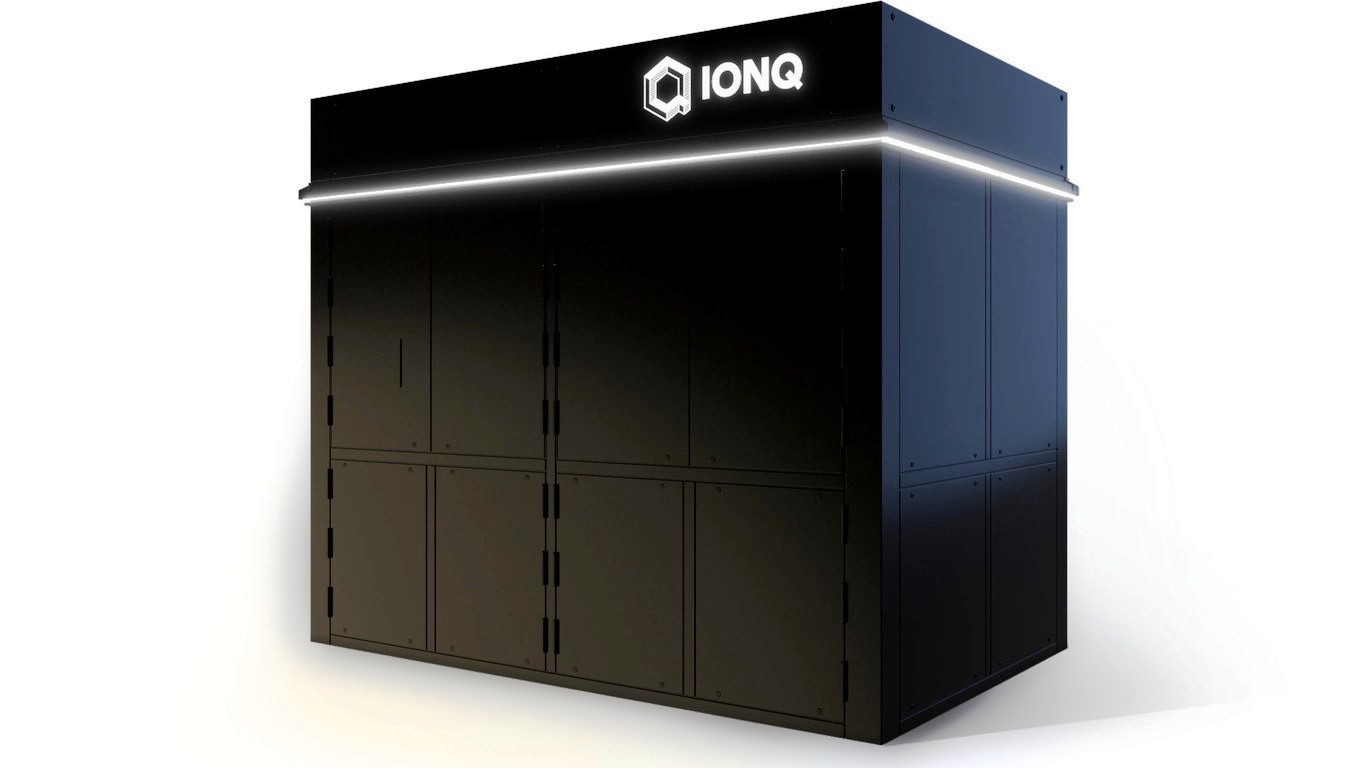
The global coronavirus outbreak has been officially declared a pandemic by the World Health Organization. The disease’s impact on the global economy seems to get stronger with each passing day, as more cases are discovered in new locations around the world.
New cases of COVID-19 in Hubei province, the Chinese epicenter of the outbreak, have fallen to below 10 a day for the first time since December. That decline has come after the government got serious about restricting citizens’ movements and taking other measures to halt the spread of the disease.
In the United States, many employers have already encouraged or required employees to work from home, while many local schools and some colleges are sending students home with instructions to continue their classwork by way of online coursework.
As more businesses and educational institutions turn to online connections, there are companies that stand to benefit in the short term, and perhaps in the long term as well. Among these is Micron Technology Inc. (NASDAQ: MU), a major supplier of DRAM and NAND memory products.
Demand for Memory Products Is Expected to Rise
As more work moves online to help slow the spread of COVID-19, demand for additional memory, both local and in the cloud, is expected to rise. Higher demand is also projected for servers.
Micron supplies dynamic random-access memory (DRAM) memory chips for servers and NAND flash memory chips for smartphones. These chips have been suffering from supply chain disruptions, but those are expected to resolve themselves by the end of the month.
New servers to meet the demands of cloud services are also expected to be needed. Those devices also require DRAM memory chips.
NAND flash memory is used in smaller devices, like thumb drives, cameras and smartphones, where its large storage capacity and ability to write and erase data quickly is a significant benefit. Solid-state drives are also big consumers of NAND flash.
Micron already was expecting a boost in demand for its products in 2020. CEO Sanjay Mehrotra told investors recently, “[C]alendar 2020 industry-bit supply [is expected] to be lower than industry-bit demand as a result of industry capex reductions, and consequently we expect the industry environment to improve through calendar 2020.”
What Wall Street Thinks of Micron
Earlier this week, KeyBanc Capital Markets boosted its price target for Micron shares to $63 and reiterated an Overweight rating on the stock. KeyBanc’s analyst cited limited supply and strong demand from data centers.
At the beginning of March, analysts at Baird lifted Micron’s rating from Underperform to Neutral and raised the price target from $45 to $55 a share.
Adding balance, Merrill Lynch lowered its rating from Buy to Underperform but left the price target unchanged at $50.
Micron also has been one of the stocks to buy for hedge funds. The company’s shares are among the 30 most popular among 850 top U.S. hedge funds.
As of Thursday’s close, the Philadelphia (PHLX) semiconductor index (SOX) has closed up just under 3% for the past 12 months. Thursday’s stock market collapse, down nearly 10%, hit both Micron Technology stock and the SOX index even harder than the overall market, with losses for both at around 11%.
It’s not accurate to call Micron a Wall Street darling just now, but the stock is holding its own in what is looking more and more like a full-on bear market. The coronavirus pandemic is a temporary phenomenon, and while Micron has taken some hits, its CEO’s outlook for the year hasn’t changed. It has been delayed, however.
At Friday’s opening price of $41.57, Micron stock is a long way from its consensus price target of $67.65. The stock won’t recover soon but it is expected to do so later this year.
In the best case, businesses will continue and even encourage their employees to work from home whenever possible. That should sustain demand for memory products and, more likely, increase it.
In the worst case, CEO Mehrotra’s outlook should play out as he expects. Demand for memory products for smartphones, Internet of Things devices and servers is going to pick up. It’s just a matter of time.
Thank you for reading! Have some feedback for us?
Contact the 24/7 Wall St. editorial team.

 24/7 Wall St.
24/7 Wall St.



